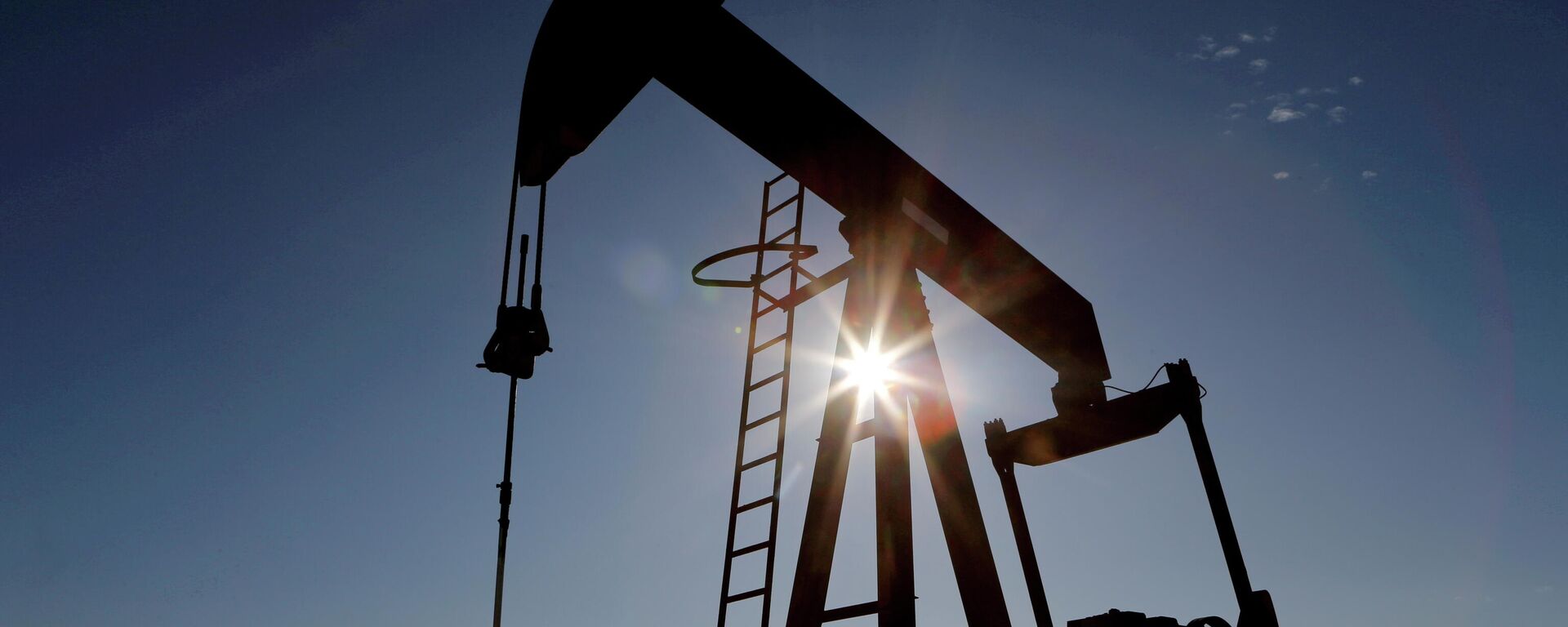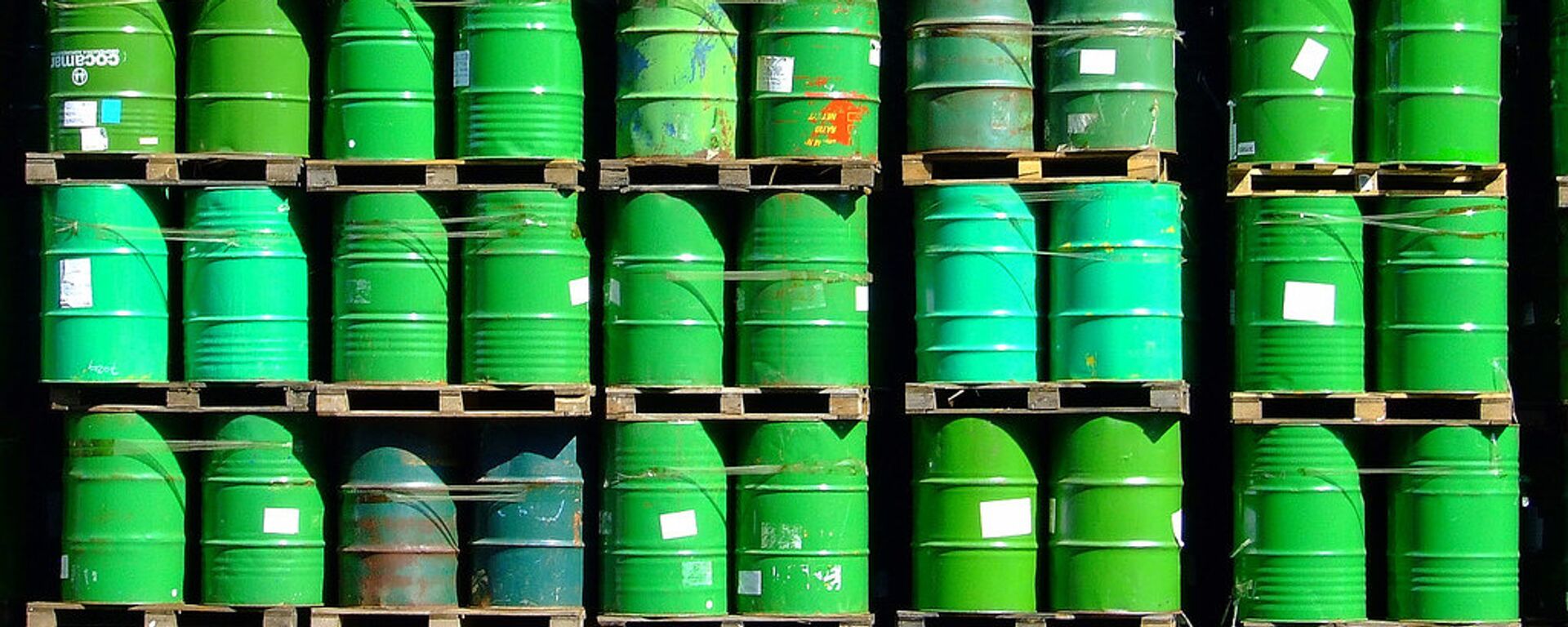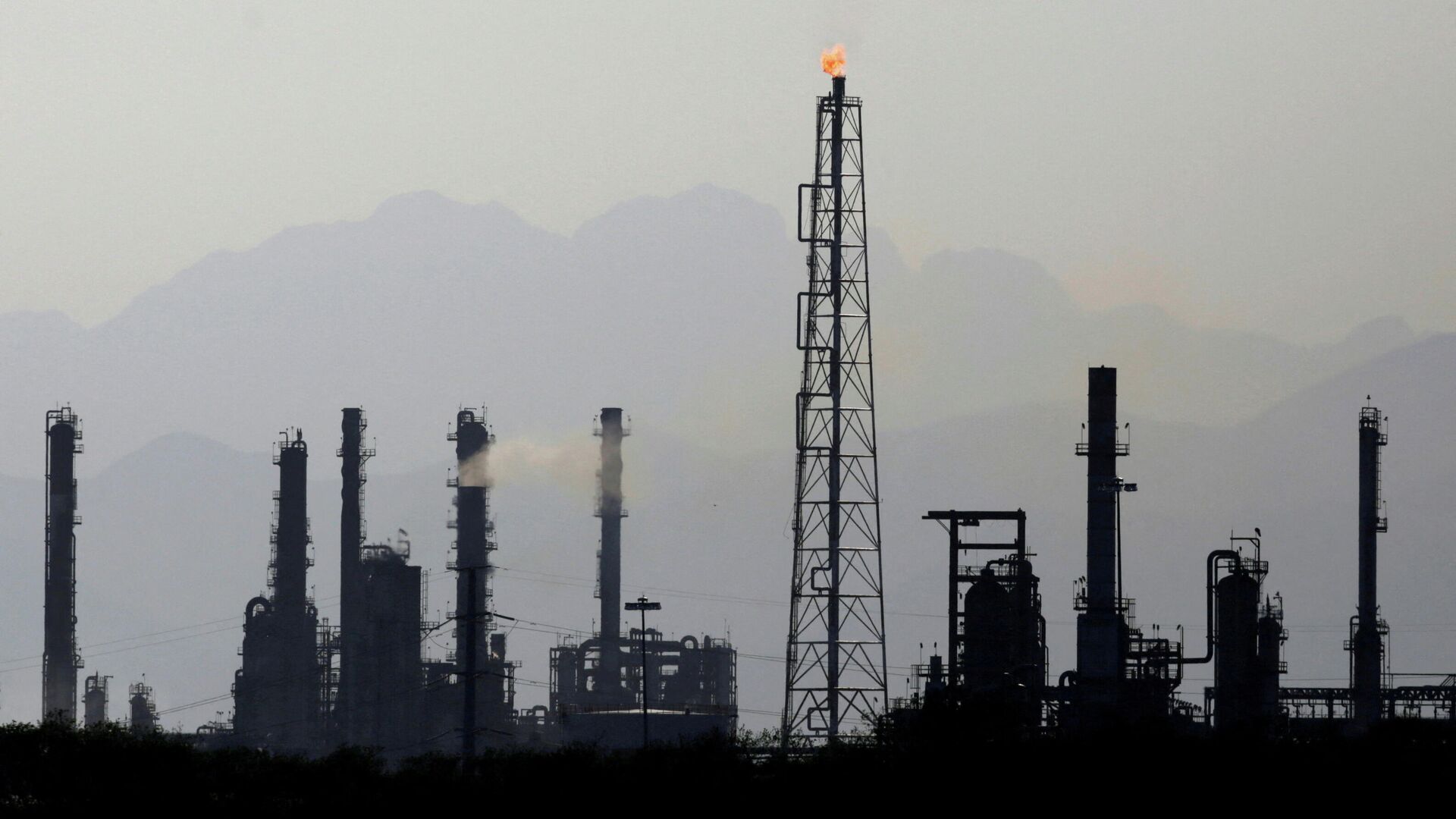https://sputnikglobe.com/20220115/lagging-production-and-surging-demand-suggest-high-global-oil-prices-will-stay-for-2022-1092269987.html
Lagging Production and Surging Demand Suggest High Global Oil Prices Will Stay for 2022
Lagging Production and Surging Demand Suggest High Global Oil Prices Will Stay for 2022
Sputnik International
The coronavirus pandemic continues to grip the global economy, and its continuing effects on the fossil fuel industry could see oil prices remain elevated... 15.01.2022, Sputnik International
2022-01-15T02:13+0000
2022-01-15T02:13+0000
2022-01-15T07:36+0000
oil prices
opec
https://cdn1.img.sputnikglobe.com/img/07e5/0c/1d/1091886838_0:47:3170:1831_1920x0_80_0_0_37becd583a22a089b527a2a4ced4cf56.jpg
When economies slowed in early 2020 in an attempt to stop the spread of COVID-19, global oil demand plummeted. As a result, fossil fuel producers eased production so as to maintain profits.To maintain balance, oil producers tapered production, and, in early 2020, members of OPEC Plus agreed to cut daily oil production by some 10 million barrels a day.However, as vaccines have become widely available, economies have begun to normalise, and with it so has demand for oil. The only problem is that the extraction, production, and delivery of fossil fuels has yet to catch up with demand.Today, Brent crude, the international standard for oil prices, is $84 a barrel, and West Texas Intermediate (WTI), the American standard, is $82 a barrel. According to WTI, in December 2019, right before the coronavirus pandemic, a barrel of oil cost $66.25. By March 2020, as the pandemic gripped the globe, the price had dropped to $22.12. Nearly a year later, the price of a barrel of oil had rebounded to $66.38.The reason for the lag in supply has largely been the inability to scale production back to pre-pandemic levels, even as pre-pandemic demand is expected to be reached later this year.Oil producers have found it difficult or have been reluctant to scale up operations. Reasons vary, from political turmoil and outdated regulations and infrastructure, to oil companies reconsidering their investments to improve profit and, in some cases, reduce carbon emissions.Nigeria, Africa's largest oil producer, has found it difficult to secure more investment. Damage to infrastructure has cut production by 300,000 barrels a day and companies aren't lining up, as they did in the past, to fund repairs in areas that are susceptible to crime.OPEC Plus has shouldered much of the blame for the lag in global oil supply. The 19-nation group produces half of the world's oil, but many of the member countries, including Nigeria, have struggled to ramp up production.Saudi Arabia, which produces close to 10% of the world's oil on the market, could, however, produce more and help alleviate the lag in production.In July, OPEC Plus revealed plans to raise monthly oil production by 400,000 barrels but has continued to miss their targets. Individual targets for OPEC Plus members could be reassigned to others, but so far there has been resistance to such measures.Saudi Arabia, as the most powerful member of OPEC Plus, has reportedly been resistant to break their agreement and increase production beyond the agreed upon quota made with other OPEC Plus nations.Part of the motivation for Saudi Arabia's reluctance to increase production is an apparent need to protect their relationships and influence with other OPEC Plus members. The economic motivation for Riyadh, like every other nation, is that high oil prices lead to higher revenues.The United States, the largest oil producer in the world, has also had trouble scaling up production. During the pandemic, US production dropped by over a million barrels a day. The Energy Information Administration believes that US production in 2022 is likely to produce 500,000 fewer barrels a day than it did pre-pandemic.Oil prices achieving pre-pandemic levels will take time, according to reports. Oil-producing nations are struggling to increase production and are benefiting economically as the supply crunch coincides with the increased demand.
https://sputnikglobe.com/20211207/global-oil-prices-to-average-70-per-barrel-in-2022-us-energy-agency-eia-says-1091331258.html
https://sputnikglobe.com/20220114/us-says-oil-from-strategic-reserve-sale-could-hit-market-as-early-as-january--energy-dept-1092245570.html
Sputnik International
feedback@sputniknews.com
+74956456601
MIA „Rosiya Segodnya“
2022
News
en_EN
Sputnik International
feedback@sputniknews.com
+74956456601
MIA „Rosiya Segodnya“
Sputnik International
feedback@sputniknews.com
+74956456601
MIA „Rosiya Segodnya“
oil prices, opec
Lagging Production and Surging Demand Suggest High Global Oil Prices Will Stay for 2022
02:13 GMT 15.01.2022 (Updated: 07:36 GMT 15.01.2022) The coronavirus pandemic continues to grip the global economy, and its continuing effects on the fossil fuel industry could see oil prices remain elevated throughout the year, according to reports.
When economies slowed in early 2020 in an attempt to stop the spread of COVID-19, global oil demand plummeted. As a result, fossil fuel producers eased production so as to maintain profits.
To maintain balance, oil producers tapered production, and, in early 2020,
members of OPEC Plus agreed to cut daily oil production by some 10 million barrels a day.
However, as vaccines have become widely available, economies have begun to normalise, and with it so has demand for oil. The only problem is that the extraction, production, and delivery of fossil fuels has yet to catch up with demand.
Today, Brent crude, the international standard for oil prices, is $84 a barrel, and West Texas Intermediate (WTI), the American standard, is $82 a barrel.
According to WTI, in December 2019, right before the coronavirus pandemic, a barrel of oil cost $66.25. By March 2020, as the pandemic gripped the globe, the price had dropped to $22.12. Nearly a year later, the price of a barrel of oil had rebounded to $66.38.
The reason for the lag in supply has largely been the inability to scale production back to pre-pandemic levels, even as pre-pandemic demand is expected to be reached later this year.

7 December 2021, 19:33 GMT
According to Richard Bronze, the head of geopolitics at Energy Aspects: "In a lot of places, once output has been reduced, it is not easy to bring it back".
Oil producers have found it difficult or have been reluctant to scale up operations. Reasons vary, from political turmoil and outdated regulations and infrastructure, to oil companies reconsidering their investments to improve profit and, in some cases, reduce carbon emissions.
Nigeria, Africa's largest oil producer, has found it difficult to secure more investment. Damage to infrastructure has cut production by 300,000 barrels a day and companies aren't lining up, as they did in the past, to fund repairs in areas that are susceptible to crime.
OPEC Plus has shouldered much of the blame for the lag in global oil supply. The 19-nation group produces half of the world's oil, but many of the member countries, including Nigeria, have struggled to ramp up production.
Saudi Arabia, which produces close to 10% of the world's oil on the market, could, however, produce more and help alleviate the lag in production.
According to Bill Farren-Price, the director of intelligence at Enverus: "Most OPEC producers are becoming capacity constrained, but Saudi Arabia is a different story — its appetite for active oil market management is undiminished".
In July, OPEC Plus revealed plans to raise monthly oil production by 400,000 barrels but has continued to miss their targets. Individual targets for OPEC Plus members could be reassigned to others, but so far there has been resistance to such measures.

14 January 2022, 00:43 GMT
Saudi Arabia, as the most powerful member of OPEC Plus, has reportedly been resistant to break their agreement and increase production beyond the agreed upon quota made with other OPEC Plus nations.
Part of the motivation for Saudi Arabia's reluctance to increase production is an apparent need to protect their relationships and influence with other OPEC Plus members. The economic motivation for Riyadh, like every other nation, is that high oil prices lead to higher revenues.
The United States, the largest oil producer in the world, has also had trouble scaling up production. During the pandemic, US production dropped by over a million barrels a day. The Energy Information Administration believes that US production in 2022 is likely to produce 500,000 fewer barrels a day than it did pre-pandemic.
Oil prices achieving pre-pandemic levels will take time, according to reports. Oil-producing nations are struggling to increase production and are benefiting economically as the supply crunch coincides with the increased demand.





